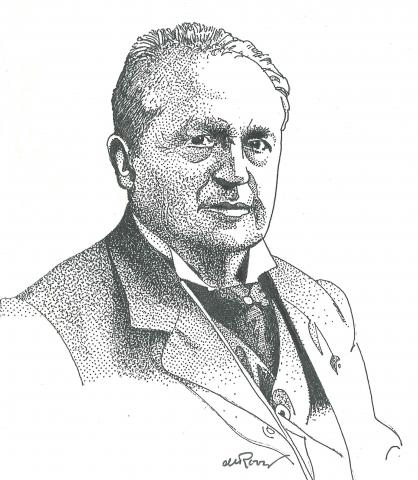A revised and updated version of
Abraham Kuyper: An Annotated Bibliography 1857-2010 by Tjitze Kuipers (2011)
You can buy a printed edition of this book on the site of the publisher.
1885
An address held on the evening of June 30, 1885 at the start of the fifth annual prayer meeting for the Vrije Universiteit. This prayer meeting preceded the annual meeting of the Association for Higher Education on Reformed Principles (see 1878.10). In his address Kuyper applies a line from Daniel 2:43, “just as iron does not mix with clay,” to the situation in the Dutch Reformed Church, in which belief and unbelief have become mingled. He identifies four deadly influences that have fostered this intermingling and assures his audience that the Vrije Universiteit is trying to render these influences innocuous.
The speech opens with a remarkable historical analogy. In 1617, when the Arminians had the upper hand in The Hague, the consistory denied the request of the Reformed to hold a prayer service in the Kloosterkerk. Almost three hundred years later, the Reformed Consistory of The Hague was again refusing to allow Reformed Christians to hold a prayer service in the Kloosterkerk. Then as now, the reasons for the refusal of the Consistory of The Hague were fear of schism, objection to the presumed revolutionary intentions of the participants, and the desire to inhibit what they considered ungodly work.
A printed copy of this address has also been preserved in larger format with the same typeface and broader margins. This copy has 27 ([1]–27) single-sided, printed, and numbered pages and lacks a title page (cf. 1909.27).


